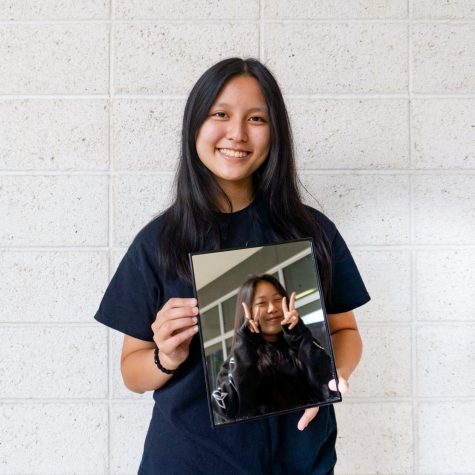Escaping the Echo Chamber
The scope of activism becomes limited when ideas are recycled, shutting off avenues to conflicting beliefs.
In a time when activism is reaching new heights and public discussions about political ideals are more normalized than ever, social media, like history, has begun to repeat itself. As students scroll through their feeds, they are met with the same graphics reposted one after the other and exposed to information that, more often than not, confirms their original beliefs.
This is the social media echo chamber, and if students want to be more politically active and less polarized as a group, they must be willing to leave their individual chambers.
Digital echo chambers, which are defined as online platforms in which opposing perspectives are filtered out, stems from a divisive political climate and one’s fear of ostracization, according to the Brookings Institute and the Pew Research Center.
“I definitely think that a shared understanding of truth in our nation is something that we have moved away from, and it’s caused a lot of fractures and made more fractures more pronounced,” Passion Civics teacher Kathryn Beechinor said. “So I think that if we’re able to come to a shared understanding of truth, that’s what leads us back to a path of progress… Echo chambers hurt that because that truth is gone. It’s broken.”
Although it is true that social media utilizes algorithms to recommend content aligned with a user’s preferences, it would be incorrect to claim that these algorithms are solely responsible for the creation of ideologically homogeneous groups on social media.
Research by VOX-Pol, a European Union academic research network, implies that people willingly follow their echo chambers by exposing themselves to content that conforms with their opinions.
Ultimately, echo chambers are a choice. Individuals can and should have educated conversations with those they disagree with, rather than immediately dismissing their claims. They must also be more mindful of the news they consume, being careful to pull from a variety of diverse sources.
According to a 2019 poll by the Reuters Institute, about 57% of individuals from Generation Z rely on social media as their first source of news in the morning. Of all age groups, Generation Z is the most likely to be exposed to social media echo groups. These echo chambers are apparent in the way that social media users flooded various platforms, like Instagram, with discussions on topics like the election and social justice movements throughout 2020.
“I know some of the posts were really good and informative, but I also noticed some posts that held the visual aesthetic above the actual information, and it made me feel a little uncomfortable,” sophomore Ellie Lian said. “I think a large part of this change is simply just because the whole world seems to have strayed from [these issues] because many people regarded them as a trend.”
Mindlessly regurgitated ideas are not as progressive as online communities often pressure them to be, even if those ideas are the “most” politically and socially-correct of the corresponding communities. The most potentially impactful contributions are products of exploring an opposing perspective.
Your donation will support the student journalists of Portola High School. Your contribution will allow us to purchase equipment and cover our annual website hosting costs.

Charlotte Cao is the Features Editor for her third and, unfortunately, final year on the Pilot. Whether it be through the co-writing of stories or during...

Kelthie Truong is a Co-Managing Editor for the 2020-21 school year, her second and final year with the Pilot. When she’s not in the newsroom, you can...

Jaein Kim is the Director of Photography this year on the Portola Pilot. She is extremely passionate about visual media ranging from digital art to videography...




